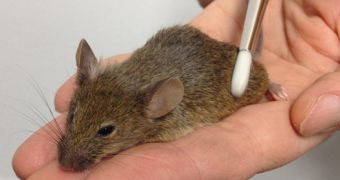Besides the chicken and the egg dilemma, there is one other issue which has been troubling the minds of researchers for several years now: why it is exactly that people and some animals enjoy both massages and being stroked as much as they do.
Thanks to a team of scientists working with the California Institute of Technology in Pasadena, it seems that this second dilemma has now finally been solved.
To cut a long story short, these researchers claim that, after carrying out several laboratory-based experiments, they have managed to pin down the neurons responsible for detecting this particular stimulus, i.e. the so-called massage neurons.
Just for the record, said experiments basically revolved around their stroking mice and checking to see how these tiny animals were responding to being touched in this manner.
Apparently, all of the furry subjects that “volunteered” for this study very much enjoyed being massaged by the researchers, all for the sake of science. Daily Mail quotes lead researcher David Anderson, who made a case of how, “We've known a lot about the neurons that detect things that make us hurt or feel pain, but we've known much less about the identity of the neurons that make us feel good when they are stimulated.”
“As scientists we can't just assume that because something feels good to us, it has to also feel good to an animal. So we then had to design an experiment to show that artificially activating just these neurons — without actually stroking the mouse — felt good to the mouse,” David Anderson went on to add.
Now that science has become aware of the neurons responsible for producing pleasurable sensations in many mammals (humans included), researchers hope that, by better learning how to toy with them, they will eventually be able to improve on medical issues such as the symptoms associated with anxiety.
“It may seem frivolous to be identifying massage neurons in a mouse, but it could be that some good might come out of this down the road,” researcher David Anderson commented with respect to this study.

 14 DAY TRIAL //
14 DAY TRIAL //